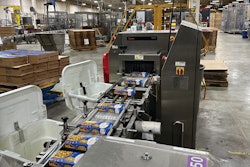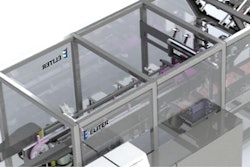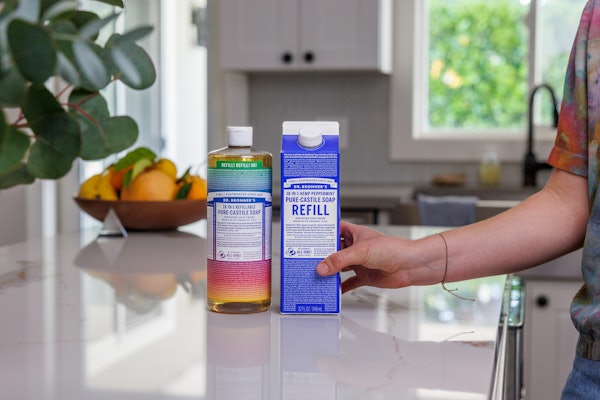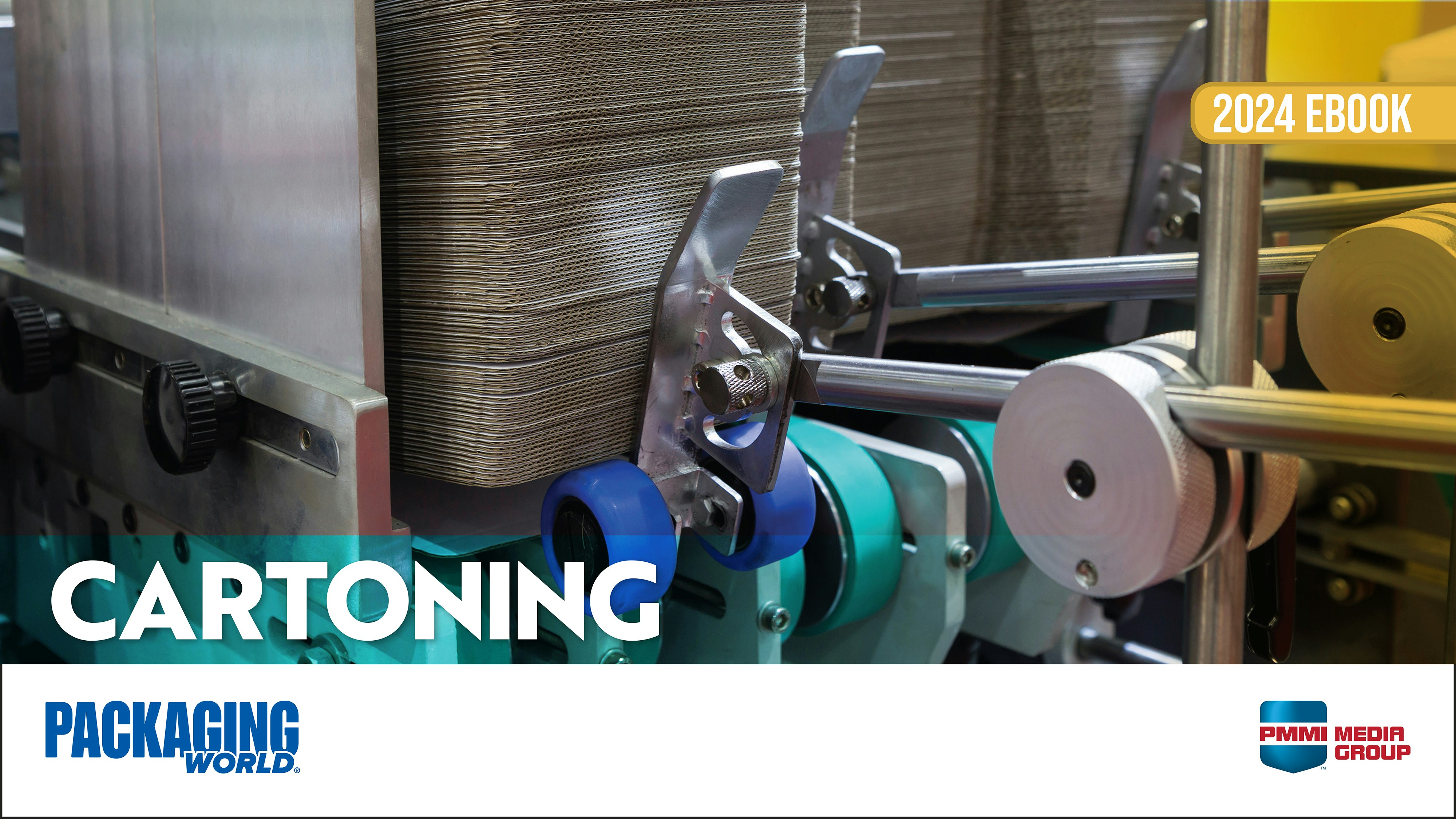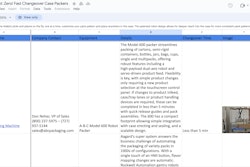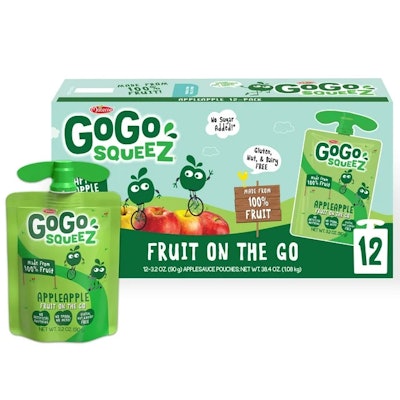
Applesauce-in-a-pouch leader Materne has modernized its request for proposal (RFP) process with Arkestro procurement software, strengthening its supplier network and finding major savings along the way.
Materne has over 140 years of history as an applesauce producer in France, initially packaging its product in cups until it became the first to offer pouched applesauce in 1998. The company expanded into the U.S. under the name GoGo squeeZ in 2008, operating from a New York City office and starting with a co-manufacturer.
“Long story short, now we have two manufacturing facilities, one in Michigan and one in Idaho,” says Mathieu Pappalardo, vice president of Materne Procurement. “We do roughly $600 million in sales and manufacture over 120,000 tons of product.”
GoGo squeeZ is available in a range of multipack sizes, from retail four-packs to 48-count cartons for foodservice, totaling around 50 million cartons and a baseline spend of about $20 million per year. In all, the company owns 70% of the market share for pouched applesauce.
Materne may be dominating the market now, but it still has ambitions for growth. “The goal for us is not so much to gain more market share, it’s to grow the category as a whole, to grow household consumption. We want to keep 70% market share, but on a bigger pie,” Pappalardo says.
Finding solutions for growth with procurement software
To support this growth, Materne realized it needed to grow its supplier network, adding layers of continuity to support new products and protect against supply chain disruptions.
Materne had previously focused on the bottom line when strategizing its supplier network, but the COVID-19 pandemic and subsequent supply chain disruptions prompted a reprioritization. As a result, Materne’s focus shifted toward business continuity to withstand unexpected changes.
That said, Pappalardo knew supply chain resiliency often comes at a price. Knowing that the addition of extra suppliers can bring a negative cost impact, he says that Materne was hoping to “maintain costs at the very least, or potentially realize some savings.”
Pappalardo was also looking for a way to automate the company’s procurement. Short-staffed on some categories and struggling with overly manual processes, he was looking for a solution that could save time. “Not just automating, but having a consistent way of doing RFPs, using the same tools over again, reusing the data from previous bids,” he explains.
Materne turned to Arkestro’s Predictive Procurement Orchestration (PPO) software as a potential solution, and initial results were exceptionally promising; starting with a small project, the software brought 40% savings.
When a three-year agreement with Materne’s carton suppliers reached its end, it was the perfect time to try Arkestro’s software on a larger scale. The same success achieved earlier with the smaller project carried over to the cartoning RFP. Materne used Arkestro’s software to not only add two carton suppliers to its network, but also achieve $1 million in savings per year.
“It’s a big success because we achieved both goals, which were not necessarily easy combined together,” says Pappalardo.
 | Read the three tactics chief procurement officers can use to navigate packaging shortages. |
How the software works for Materne
Arkestro’s PPO platform uses machine learning, game theory, and data science to help companies make fast and informed buying decisions. It centralizes procurement processes onto one platform and offers real-time insights and price comparisons.
One of the main draws of the Arkestro procurement software that Materne discovered during the cartoning RPF is its ability to streamline negotiations. The process started with Materne reaching out to its three incumbent suppliers to request new pricing.
“The prices we got were not satisfying, so then we said, ‘Okay, we have to bring everybody on this RFP,’” explains Pappalardo. “We invited eight suppliers in total, so the three incumbents, plus five prospects.”
Materne entered the forecasted volume and specifications for its cartons into the Arkestro software and invited all eight suppliers to provide quotes through the system. Having every supplier offer quotes through Arkestro simplifies communications for Pappalardo’s team, replacing several back-and-forth emails with a single system containing each offer. All communication takes place in the system, from questions and comments to new bids.
It also promotes competition for suppliers. “The system will tell [suppliers] they’re 20% higher than the average bid,” Pappalardo says. “It triggers the fear of missing out, if you will, so suppliers will improve their price. That alone explains a big part of the success.”
Further benefitting Materne, Arkestro’s software uses AI to analyze bids against the market rate, comparing prices from previous bids and even other manufacturers.
“The combination of market intelligence and comparing suppliers between themselves really helps to push the price down,” says Pappalardo.
Wrapping up negotiations quickly
Materne conducted the RFP in three rounds. Suppliers entered their first submissions, and the company analyzed the results before giving them another chance to enter submissions in the second round. The third round allowed Materne to finalize details.
Five carton suppliers were awarded contracts, including the three incumbents and two newcomers.
In all, the RFP took about six weeks to complete. “It was much faster than if we had done it outside,” says Pappalardo. “If every time we had a question, we had to schedule a meeting and get an answer, which triggers questions for another supplier, that takes a lot of time that we didn’t have to go through.”
As a direct comparison, Pappalardo says Materne’s previous carton supplier RFP from three years ago took four to five months without the help of Arkestro’s program.
In the beginning, some suppliers raised concerns about losing human touch in negotiations. Pappalardo notes that there is “always room for conversation,” and says suppliers were eventually very compliant. “I haven’t heard of any problems from my suppliers; I think everybody is getting used to it,” he adds.
Future plans with the procurement software
After the clear success of implementing Arkestro’s procurement software for its carton RFP, Materne has its sights set on more projects with the software. That starts later in 2024 with another RFP, this time with shipping cases—a $10 million-per-year spending category for the company. “The cases aren’t as big a spend as cartons, but it’s significant,” Pappalardo says.
With the system established with Materne’s data, the next RFPs for carton suppliers will be even easier. “Three years from now, when I’m doing my [cartoning] RFP, all my information, all my specs are loaded into Arkestro,” says Pappalardo. “I don’t have to go to my R&D department to find the specifications, it’s all there. I just click a button and it triggers another RFP.”
Now that Pappalardo and his team have gotten past the learning curve in adopting this new technology, he’s excited for the extra efficiency it can provide. Say Pappalardo, “It’s just a training thing, and once you master it, you can’t live without it.”
 | Learn the six questions to ask about your cartoning operation at PMMI ProSource. |
